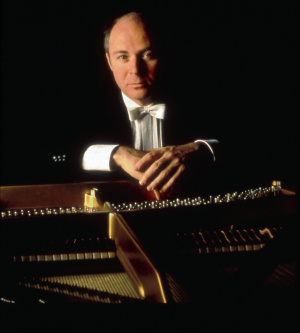

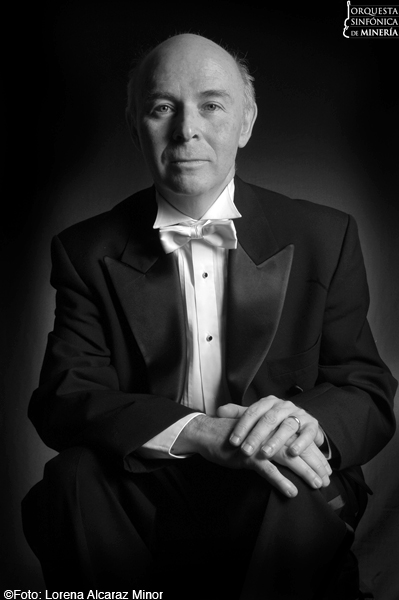 BD: Can you
be more adventurous with young people?
BD: Can you
be more adventurous with young people?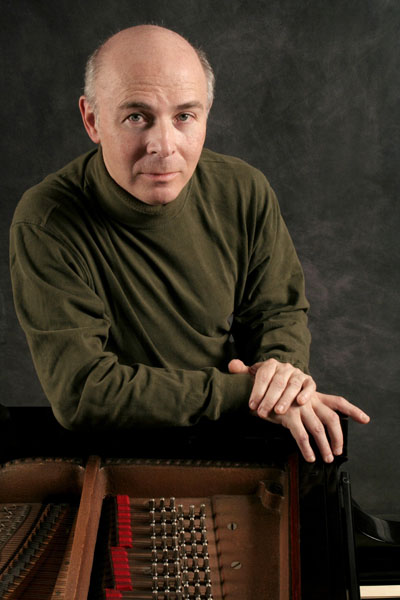 BD: Are you
known as a specialist in any one area?
BD: Are you
known as a specialist in any one area?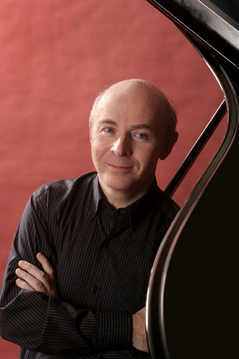 BD: Do you
succeed?
BD: Do you
succeed?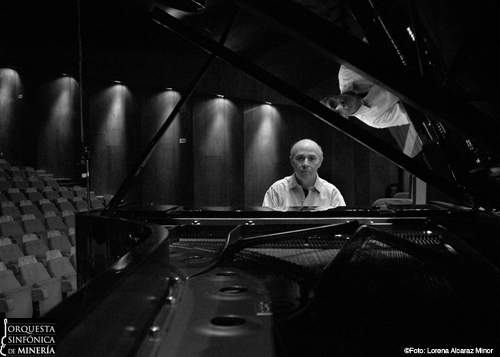 BD: So it
would someone who already knew how to write for the piano?
BD: So it
would someone who already knew how to write for the piano?|
Mr. Osorio’s extensive discography includes a wide variety of repertoire. His solo Brahms recording on ASV was proclaimed by Gramophone as “one of the most distinguished discs of Brahms’ piano music in recent years.” IMP Classics has recently released his recordings of Beethoven’s Five Piano Concerti and Choral Fantasy, and in addition to his orchestral recordings of works by Brahms, Mozart, Rachmaninov, Schumann and Tchaikovsky, Mr. Osorio made the world premier recording of Manuel Ponce’s Piano Concerto. He has also recorded four Beethoven Sonatas and “Balada Mexicana”, solo piano works of Ponce. Born in Mexico, Mr. Osorio began his musical studies at
the age of
five. He studied at the conservatories of Mexico, Paris and Moscow, and
his teachers have included his mother, Luz Maria Puente, Bernard
Flavigny, Monique Haas, Jacob Milstein, Nadia Reisenberg and Wilhelm
Kempff. Performing chamber music is an integral part of his artistic
life and in addition to having served as artistic director of the
Brahms Music Festival in Mexico, he has performed with the Moscow
Quartet, Tel Aviv Quartet, violinist Mayumi Fujikawa and cellist
Richard Markson as part of a piano trio and with the late Henryk
Szeryng. He is the recipient of several international prizes and
awards, including the Rhode Island International Master Piano
Competition and the Dallas Symphony Orchestra’s Gina Bachauer Award. -- Biography from the
Naxos Website
|
This interview was recorded in Chicago on June 27, 1994.
Portions (along with recordings)
were used on WNIB in each of the following three years — 1995, 1996,
and 1997. This transcription was
made and posted on this
website in 2009. It has also been included in the
internet channel Classical
Connect.
To see a full list (with links) of interviews which have been transcribed and posted on this website, click here.
Award - winning broadcaster Bruce Duffie was with WNIB, Classical 97 in Chicago from 1975 until its final moment as a classical station in February of 2001. His interviews have also appeared in various magazines and journals since 1980, and he now continues his broadcast series on WNUR-FM, as well as on Contemporary Classical Internet Radio.
You are invited to visit his website for more information about his work, including selected transcripts of other interviews, plus a full list of his guests. He would also like to call your attention to the photos and information about his grandfather, who was a pioneer in the automotive field more than a century ago. You may also send him E-Mail with comments, questions and suggestions.